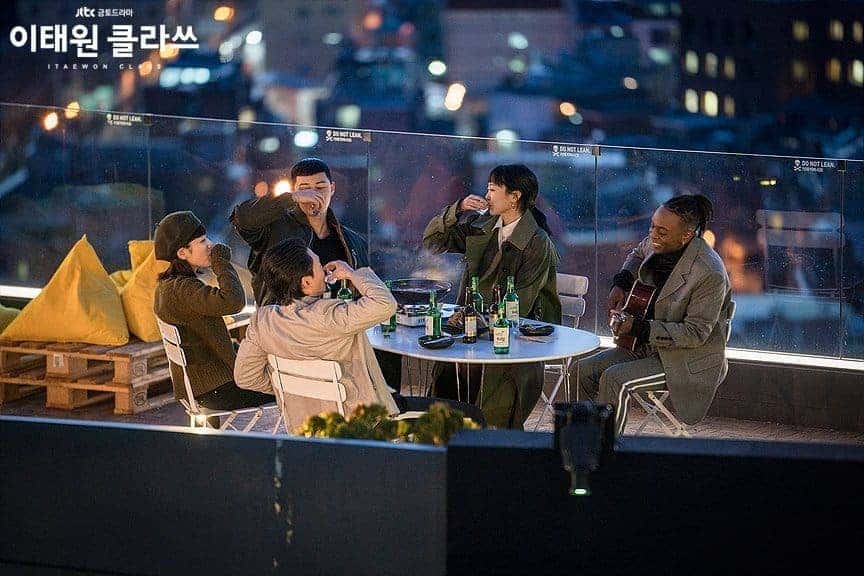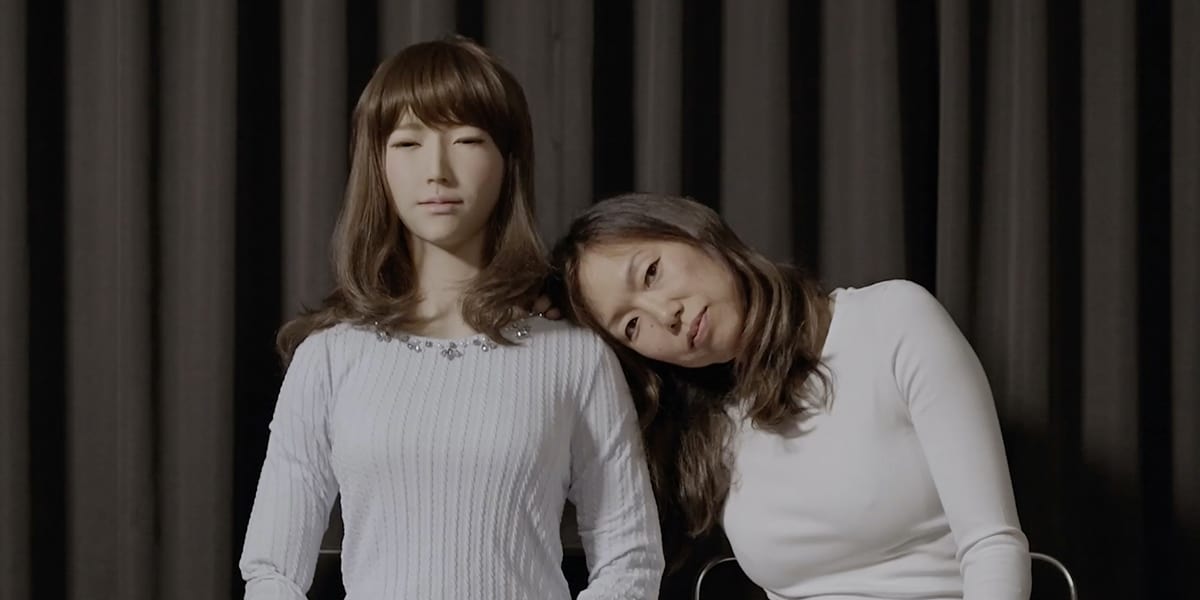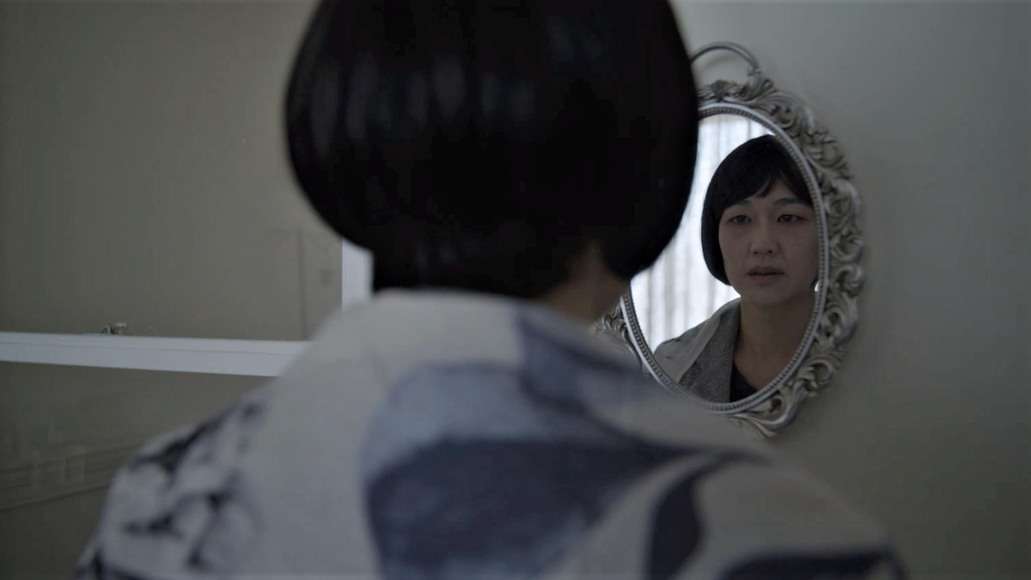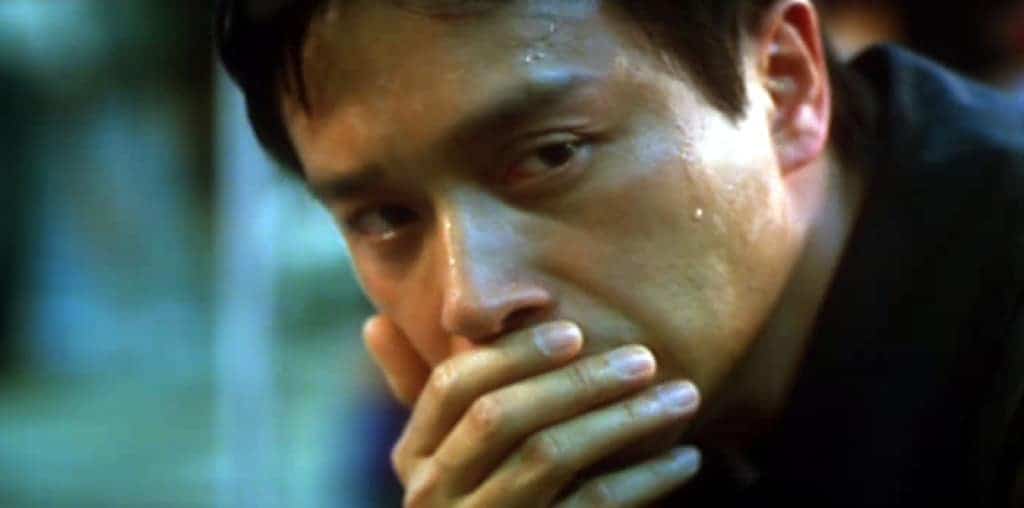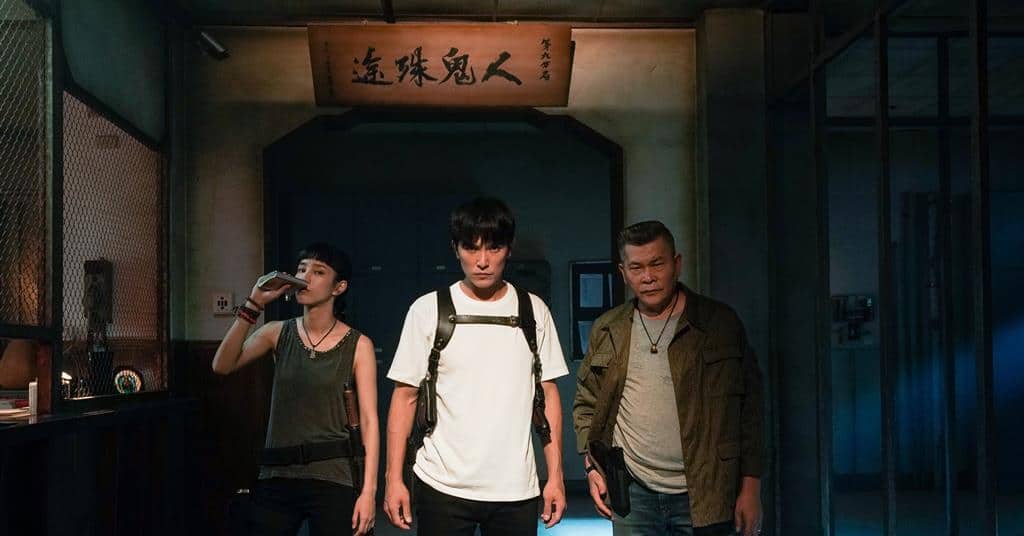Nestled within Seoul is the bustling area of Itaewon, an area that's popular among Seoul locals, tourists, expats and US military personnel alike. It is filled with restaurants serving international cuisines and shops catering to all tastes selling both international and Korean brands. Every year, a huge Halloween procession throngs the area. It is, essentially, a place where everyone is welcome, despite their differences. It is in this location that writer Gwang Jin sets the story of “Itaewon Class”, a drama that has been adapted from Gwang's own webtoon of the same name.
On his very first day in a new school, Park Saeroyi falls for the beautiful Oh Soo-ah and gets in a fight with chaebol (large family owned conglomerate) heir and bully Jang Geun-won over harassing a classmate. Geun-won is the son of CEO Jang Dae-hee, whose food company Saeroyi's father works at a reputable position. The school involves the parents and CEO Jang agrees to forgive Saeroyi on the condition that he kneels and apologises to Geun-won. Ever the idealist like his father taught him, Saeroyi refuses to apologise and is subsequently expelled from school and his father fired. Shortly after, Saeroyi's father dies in a hit-and-run accident, whose perpetrator also happens to be Geun-won. When he finds out about this, an enraged Saeroyi seeks him out and beats him, stopping just short of killing him. This earns Saeroyi two years in jail for assault.
After finishing his jail term, Saeroyi returns with two goals in mind: to open a pub of his own and to become bigger than CEO Jang's Jangga Co as revenge. Soo-ah, meanwhile, has just joined Jangga's Management team. Going away on deep-sea fishing boat for seven years, Saeroyi returns to open DanBam, a tiny corner pub in Itaewon, near to Jangga's flagship pub which is now managed by Soo-ah, which he operates with an ex-con friend Choi Seung-kwon and Ma Hyun-yi, the pub's chef who he met while out on the deep sea. One night, he meets Jo Yi-seo, a clever and strong-willed social media celebrity who also happens to be a sociopath and Jang Geun-soo, Yi-seo's friend who has a crush on her and who also just happens to be the illegitimate son of CEO Jang. After the two get DanBam and Saeroyi in trouble, Geun-soo decides to work at DanBam. Yi-seo, meanwhile, is completely enamoured by the idealist, headstrong, ambitious and handsome Saeroyi and decides to do everything to help him achieve his dream. She gets hired as the manager of DanBam and together all of them, including Guinean-Korean Kim Toni, who Yi-seo hires to attract foreigner customers, work with one aim: to make DanBam the best pub in the country.

Itaewon, the area, represents freedom for many: a freedom to dream what you want to dream, no matter how impossible its realisation. “Itaewon Class”, at its core, has Park Saeroyi's seemingly impossible dream and with it a message that no matter how far-fetched, no ambition goes unfulfilled if you work hard towards achieving it. Through the DanBam team's struggles, the series also highlights just how hard it is for a regular person with a dream to do well in a field and society that's dominated by chaebols and multi-national corporations in modern South Korea. It also talks about just how much power and pull these companies and the people running them hold not just in business circles but also law enforcement. The general narrative that all chaebols are bad and succeed thanks to many shady and illegal dealings is sadly also present.
Itaewon is also a symbol of individual identity and inclusion, a place where people have the freedom to be what they want to be and not feel ostracised for it in the otherwise conservative society. “Itaewon Class”, for its part, takes leaps and bounds for inclusion and representation in K-dramas. For the first time, we have a central character who is transgender. The show does well in accepting the characters for who they are and gives them the same respect the others get and also explores the stigmas attached to being a transgender in Korea. With the character of Kim Toni, the show not only has a central foreigner character and actor but also ably depicts the prejudice and racism that foreign people face, specially those of colour, even when all they want to do is be accepted where they rightfully belong.
For a K-drama, “Itaewon Class” is rather lightweight when it comes to the romance, and is better for it. Sure, there is a love triangle at its centre with Saeroyi, Yi-seo and Soo-ah, as well as Geun-soo's feelings for Yi-seo, all of which is well woven into the story and pops up at regular intervals, romance is more on the back burner throughout the story, even if it is Yi-seo's feelings for Saeroyi and Geun-soo's for Yi-seo that are driving factors for their actions. For a format obsessed with hand holding and kisses, there is in fact nary a scene of hand holding or a kiss in sight until the final ten minutes of the series. It is to the strength of the story and Gwang Jin's credit that its loss is not really felt. Gwang is also particularly strong at character writing. Every character, their traits and nature are so well etched out and this is not just limited to the central characters. Even someone as detestable as Geun-won, for example, manages to elicit sympathy for his treatment at the hands of his father. His father CEO Jang, on the other hand, in spite of being a ruthless and shrewd businessman, is awe-inspiring for how well he runs his business and dedicates himself completely for its success. The same dedication is also seen in Saeroyi, who throws himself 100% into making his dreams a reality and Yi-seo, for her part, shows the same dedication towards Saeroyi, even when she knows that she would succeed to far greater heights if she went to another place, where she could earn more.

However, some discrepancies do tend to rear their ugly heads with the characterisation. Yi-seo is said to be a sociopath and in the opening couple episodes, that part of her nature is focused on but is quickly forgotten. For someone who insists Saeroyi get on his knees and apologise to his son for humiliating him in class, CEO Jang leaves no opportunity missed in humiliating his son himself in front of several people at the company. The motive behind the change in loyalties by one of the key members of DanBam in the latter half of the series does make sense, but feels very out of character for them.
Besides Gwang's writing, another key reason the series works so well is because of its excellent cast. Saeroyi isn't the eye-candy role that Park Seo-joon usually portrays in K-dramas but one that demands a lot from him as an actor and he passes with flying colours. Check out the scene in the penultimate episode with his father to know that he has a terrific emotional range too. Yoo Jae-myung is equally impressive as CEO Jang, with the scene where he teaches Geun-won what it takes to succeed in the initial episodes and his complete breakdown in the final episode standing out. Ahn Bo-hyun also warrants special mention for managing to make the audience both repulsed by and compassionate towards Geun-won. Kwon Nara, Kim Dong-hee, Ryoo Kyung-soo and Chris Lyon are all suited to their characters Soo-ah, Geun-woo, Seung-kwon and Kim Toni respectively. Lee Joo-young needs to be particularly appreciated for taking on the risky role of Hyun-yi, a role that many actresses wouldn't want to be anywhere near, and doing a fantastic job with it.

But just as Jo Yi-seo is the star and driving force of team DanBam, it is Kim Da-mi that shines the most playing her. In “The Witch: Part 1. Subversion”, she gave one of the best female performances of 2018 and showed great promise. This, her follow-up project and first tv drama, only goes to prove that Park Hoon-jung's film was no flash in the pan. The series opens with a scene involving her and from that moment on, we are promised a fantastic performance which just keeps improving as the episodes roll by. Be it scenes of her beating far older and experienced businessmen at their game, the ones where she wrestles with Soo-ah for Saeroyi over coffees and conversations or those of her being completely smitten with Saeroyi, she doesn't put a single wrong foot forward. Equally adept at comedy, drama and romance, she once again establishes herself as an excellent talent and one to watch out for; this young girl will be going places.
The show also does a fine job in putting the neon brightness of Itaewon nightlife onto screen. The crowded restaurant interiors, the bustling streets and the large Halloween procession in the early episode all go to show the area in all its beauty. In addition to that, there are some beautiful shots of the Seoul skyline as seen from the location, particularly those at night. Seoul Tower is a landmark often shown in K-dramas, but its splendour in the panoramic shots of “Itaewon Class” needs to be seen. Music always plays an important part in the K-drama format and the soundtrack to “Itaewon Class” is as hip as the area itself. A fresh, modern sound is accompanied by some good original track, of which “Start” by Gaho, the show's title track, and “Stone Block” by Ha Hyun-woo, on which most episodes end are particularly likeable and get in your head easily.

By the time “Itaewon Class” reaches its 16th and final episode, it succeeds in getting the audience completely invested, to the point that you don't want the show to end so soon. Even though it covers more than a decade of time in its duration, the story progresses very organically. Not only does it manage to show off a part of Seoul not seen usually unless you have been there, it is also a great example of what the K-drama medium can achieve when it is not trying to be all saccharine, as it often tends to be. This could, in fact, be a great starting point for someone interested in venturing into K-dramas. Enrol into this Class, you're guaranteed great classmates and a damn good time!


